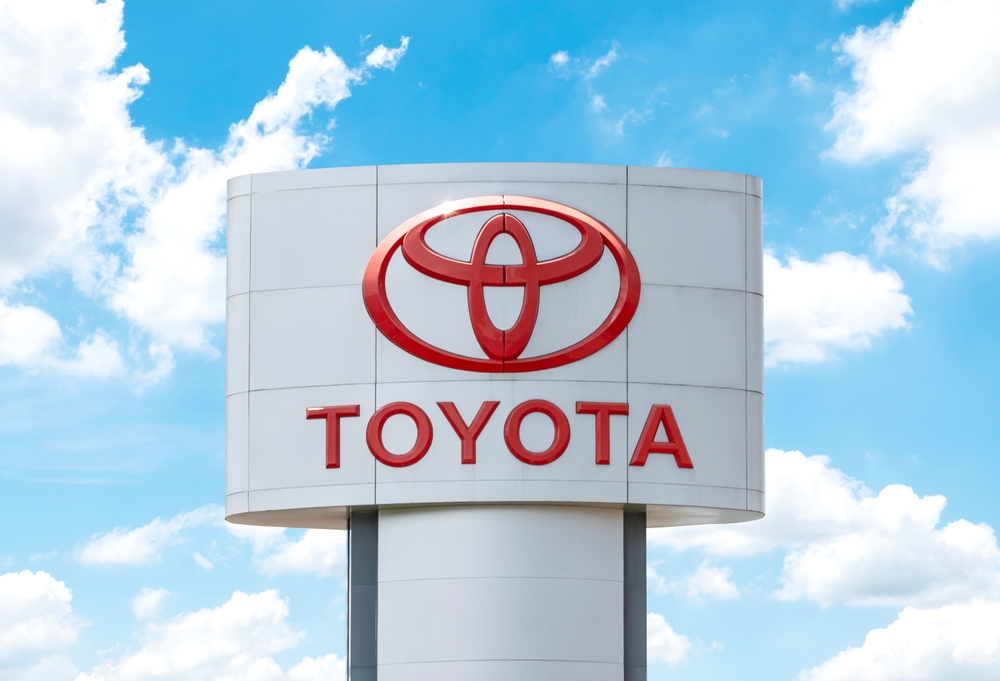Copyright © Everyday Narrative 2024. All rights reserved.
In a striking rebound from recent challenges, Toyota Motor has shattered its own global sales records, solidifying its status as the leading automaker worldwide.
Toyota Motor’s record-setting sales performance in 2023 marks a pivotal moment in the automotive industry, as it not only signifies a robust recovery from the challenges of the pandemic and the global chip shortage but also cements its position as the world’s leading carmaker. This milestone is highlighted by an impressive 7.2% increase in global sales, reaching 11.2 million vehicles, including contributions from subsidiaries Daihatsu Motor and Hino Motors, surpassing its previous high of 10.7 million units in 2019.

2023: The Year of Toyota’s Triumph
The journey to this achievement has been underpinned by strategic diversification in Toyota’s product offerings and a keen focus on hybrid and electric vehicles, which have seen substantial growth in demand. Models like the Yaris Cross and the Aygo X have led their segments, demonstrating Toyota’s ability to innovate and adapt to evolving market trends and consumer preferences. Toyota’s sales strategy, combining passenger and light commercial vehicles, has proven effective, with significant sales growth noted in both sectors.
From Humble Beginnings to Global Leadership
Toyota’s success story in 2023 is not just about numbers; it’s a testament to a company focussed on resilience, innovation, and commitment to sustainability. This significant achievement provides a solid foundation for Toyota’s future growth, as it continues to navigate the shift towards full electrification in the automotive industry.
Toyota Motor Corporation, established in 1937 by Kiichiro Toyoda, embarked on a mission to innovate and excel in the automotive industry, transitioning from a company initially involved in the automatic loom manufacturing under its parent company, Toyoda Automatic Loom Works. Toyota’s journey through the years has been marked by significant milestones, including the introduction of the Model G1 truck in 1935 before the company’s official establishment, and later, the iconic Corolla in 1966, which became one of the world’s best-selling cars.
Toyota’s pioneering development in hybrid technology with the Prius in 1997 underscored its commitment to sustainability and innovation. Today, Toyota stands as a global leader in the automotive industry, renowned for its quality, durability, and forward-looking approach to challenges such as electrification and autonomous driving technologies.
Innovation at the Heart of Toyota
Toyota’s global headquarters is located in Toyota City, Aichi Prefecture, Japan, reflecting the company’s growth and evolution since its foundation. Its architecture symbolizes innovation and sustainability, aligning with Toyota’s commitment to environmental stewardship. Among Toyota’s significant production plants, the Tsutsumi Plant, also in Aichi Prefecture, stands out for its vast scale and advanced manufacturing technologies, producing popular models like the Prius. This facility exemplifies Toyota’s production efficiency and dedication to quality, serving as a cornerstone of its global manufacturing operations.
Embracing Change: Toyota’s Adaptive Strategies
Toyota City grew around ever expanding operations. Originally a small town, its transformation into a bustling city reflects the manufacturer’s impact on the region. The Tsutsumi Plant is known for its “green” initiatives, including using solar panels and growing vegetation on walls and roofs, highlighting Toyota’s commitment to reducing its environmental footprint. This in turn complements its innovations in sustainable motoring and these examples illustrate how Toyota’s influence extends beyond automotive manufacturing, impacting urban development and environmental practices.
The Global Field
Toyota’s key rivals in the global automotive market include Volkswagen AG, General Motors, Ford Motor Company, Honda Motor Co., and Hyundai Motor Company. These companies compete across various segments, including sedans, SUVs, trucks, and electric vehicles. Volkswagen AG, for instance, has been a close competitor in global sales, often vying for the top spot with Toyota.
Tesla rivals Toyota primarily in the electric vehicle (EV) market, where Tesla’s focus on battery technology, electric powertrains, and autonomous driving features sets a competitive standard. General Motors and Ford dominate in the United States with a strong lineup of trucks and SUVs. Honda and Hyundai are noted for their innovation in compact cars and hybrid technology, directly challenging Toyota’s market share. Each of these competitors brings unique strengths to the table, from Volkswagen’s global reach to Ford’s strength in the truck segment, making the automotive industry highly competitive.
Vying for Position
Whilst Toyota’s production output reigned supreme in 2023, Tesla was in fact at the forefront of market capitalisation with a $583 billion valuation. Toyota Motor Corporation follows with a $323 billion market cap, showcasing the vast difference between the top two. Other significant players include BYD Company Ltd, Stellantis N.V., Mercedes-Benz Group AG, BMW, Volkswagen AG, Honda Motor Company, General Motors, and Ford Motor Company.
Setting the Pace in the Automotive Race
As Toyota Motor surges forward, breaking new ground with record-breaking global sales in 2023, it stands as a testament to resilience, innovation, and an unwavering commitment to sustainability. The company’s journey from its origins to a global leader in the automotive industry highlights its adaptive strategies, quality, and forward-looking approach to electrification and autonomous technologies.



